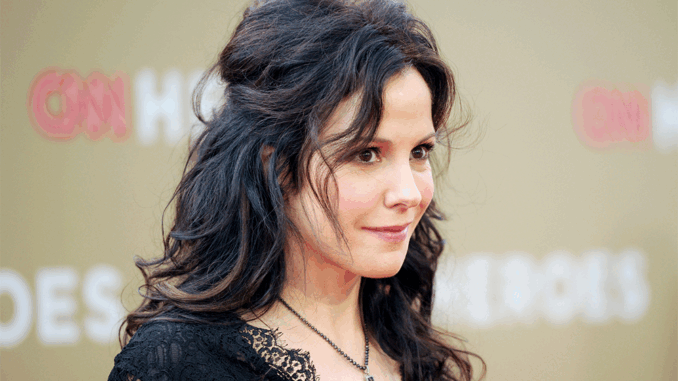
A Woman Trapped by Expectations
Ruth Jamison enters the story as a woman caught in the trappings of Southern womanhood. At first glance, she is the picture of gentility: well-mannered, modest, and devoutly religious. Raised in a world where women are expected to marry young, obey their husbands, and avoid scandal at all cost, Ruth conforms because she believes it’s her duty.
But the life she enters into is one of cruelty. Her husband, Frank Bennett, is an abusive alcoholic whose violence is hidden behind the mask of respectability. Ruth endures the abuse with heartbreaking dignity—because the era she lives in has no space for a woman to ask for help, let alone escape.
Ruth’s pain is not loud. It simmers just beneath the surface, visible only in her fleeting expressions, her trembling hands, and the way her voice softens when she speaks to Idgie. The tension between how she appears and what she suffers is the quiet tragedy of her early life.
A Love Rekindled
When Ruth is sent to live with the Threadgoode family for a time, she reconnects with Idgie, who is now a wild, unapologetic woman. Though their temperaments could not be more different—Idgie’s fire against Ruth’s calm—they share a deep bond that time cannot erase.
It is during this stay that the seeds of something deeper begin to grow. Ruth is drawn to Idgie’s freedom, her courage, and the safety she offers without question or judgment. For the first time, Ruth glimpses a different kind of life—a life not ruled by fear or expectation, but by love and autonomy.
Their affection is tender, built not on declarations but on glances, gestures, and unspoken understanding. The film never labels their relationship, but the emotional intimacy is clear. Ruth begins to believe in a future that doesn’t involve Frank, or a church that insists her suffering is God’s will.
Choosing Herself

The turning point comes when Ruth, now married and pregnant, sends Idgie a letter asking for help. It is short, subtle, and heartbreakingly polite—but it is also an act of tremendous courage. In a time when women were expected to endure, Ruth dares to ask for rescue.
Idgie answers without hesitation, arriving with Sipsey and Big George in tow. Together, they remove Ruth from her dangerous home and bring her back to Whistle Stop. Ruth does not just escape abuse—she escapes a life built on silence and sacrifice.
This moment is revolutionary. Ruth, the gentle churchgoing wife, chooses her safety, her child, and her love over the judgment of the world. In doing so, she reclaims her agency—and begins the second chapter of her life.
The Café as a New Beginning
The Whistle Stop Café, which she and Idgie open together, becomes the heart of their shared world. For Ruth, the café is more than a job or a business—it’s a declaration. She steps into public life for the first time, building a space where kindness and courage can thrive.
Behind the counter, Ruth is not just surviving—she’s glowing. She smiles more. Her movements are freer. She becomes a mother, a partner, and a pillar of the community. The café is where she finally lives out the life she never dared to imagine.
But even in this newfound happiness, Ruth never loses her grace. She remains soft-spoken, polite, and deeply compassionate. Her strength is not in defiance like Idgie’s—it’s in endurance, in empathy, in her unwavering moral compass.
The Illness and the Goodbye
Ruth’s illness—implied to be cancer—is one of the most devastating arcs in the film. Her decline is slow, tender, and tragically inevitable. But even as her body weakens, her spirit remains unbroken.
She continues to work at the café. She reads to her son. She reassures Idgie with a calmness that belies her fear. Her death is not portrayed as defeat but as a transition. Ruth faces it with quiet dignity, held by the same love that once saved her.
Her final days are among the most emotionally potent in the film. The way Idgie tends to her, the way the community rallies around them, and the way Ruth says goodbye—not with panic, but with peace—leave an indelible mark.
Love that Defies Naming
Ruth and Idgie’s relationship remains at the core of the story, even if the film avoids overt labeling. Their love is expressed not through physicality but through years of care, sacrifice, and shared dreams. They raise a son together, build a home together, and face life’s hardest moments side by side.
In a time and place where their relationship could not be spoken aloud, Ruth lives it anyway. She chooses Idgie every day—with her presence, her laughter, and the subtle ways she says “I love you” without ever saying it aloud.
That kind of love is radical. And Ruth, once the picture of propriety, becomes one of the most quietly radical characters in American cinema.
A Legacy in Whistle Stop
Ruth’s legacy is felt long after her death. Buddy Jr., the son she bore and loved, becomes a symbol of hope and continuity. The café, which she helped build, continues to serve as a haven for those on the margins.
And Idgie—so wild, so restless—becomes a softer, more grounded version of herself in Ruth’s absence. The love they shared reshaped her, offering her not just companionship but purpose.
Ruth’s memory lives on in the stories Ninny tells Evelyn. In the way Evelyn stands up for herself. In every act of kindness and courage that ripples outward from Whistle Stop.
Conclusion: Grace as Resistance
Ruth Jamison may not raise her voice or break the rules loudly—but she changes the world in her own way. Through her courage, her love, and her unwavering sense of self, she teaches us that gentleness is not weakness.
Her story is one of survival, transformation, and chosen love. And in a world that demanded her silence, Ruth answered with a life beautifully lived.
